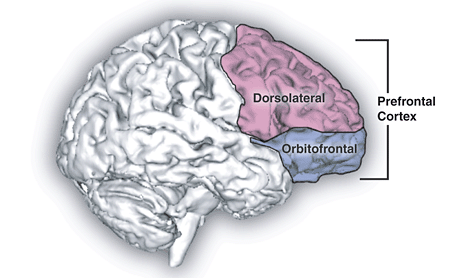
Let's try a quick experiment. Read the following list of random words:
water, first, people, although, sound, little, place, after, different, another
Now grab a pen and paper, look away from your screen, and write out as many of the words as you can remember. If you want, you can re-read the list to make sure it's fresh in your memory.
I got five out of ten (water, although, different, people, and place). What's your score? Some studies have claimed that the average is about seven, while others have said four is more typical - and still others have pointed out that it all depends on variables like word length, familiarity, and similarity between words. And of course, if you're startled by a fire engine screeching by the window, the number's likely to take a sharp drop.
Tests like this one - along with similar games involving individual letters, numbers, sounds and so on - help scientists measure the capacity of what they call working memory: the complex dance of brain activity that holds certain sights, sounds and concepts at the forefront of your consciousness. Though researchers are still debating what it is that sets working memory apart from short-term memory, one widely accepted distinction is that working memory is closely bound up with attention. If your attention's distracted, information drops out of working memory into short-term memory, from which you've got to retrieve it if you want to use it again.
Scientists have spent the past few decades looking for the neural nuts and bolts of working memory, and they've found some intriguing clues in the prefrontal cortex (PFC). This area, which lies at the very front of your brain, really ballooned up as we evolved from our primate ancestors; it's known to play crucial roles in processes like decision-making and abstract thought.

As in many areas of neuroscience, though, what scientists have found are correlations between PFC activation and those cognitive tasks - not precise explanations of how the PFC's activity contributes to those tasks. What we know for sure is that, when we're paying close attention to something - say, a list of random words - networks of PFC neurons fire in persistent rhythmic patterns, sorta like sound echoes resonating in a concert hall. As people age and their memory capacity weakens, PFC neurons have more and more trouble maintaining those firing patterns; the rhythms start to break apart more and more easily. So from all this, we can tell that those patterns of PFC activity are somehow holding the information in our working memory, and/or actually encoding that information.
And now, a new study published in the journal PLOS Computational Biology is shedding light on how stress - the blast of a fire engine's siren, say - interferes with working memory by disrupting PFC neurons' firing patterns. Researchers monitored the firing of neurons in rats' PFCs as the animals worked on navigating a maze. When the rats were startled by blasts of loud noise, the rats (understandably) had serious trouble solving the maze - but what's more interesting is that their PFC neurons actually fired faster than normal. "Rather than suppressing activity, stress modifies the nature of that activity," says Craig Berridge, one of the study's authors.
This firing increase seemed to disrupt the neurons' ability to coordinate into persistent firing patterns; as the paper puts it, "[the blast of noise] generally suppressed the ability for past spiking activity of PFC neurons to predict or modulate these neurons' ongoing activity." In short, stressed neurons lost the beat. "Even though these neurons communicate on a scale of every thousandth of a second, they know what they did one second to one-and-a-half seconds ago," says David Devilbiss, another of the study's authors. "But if the neuron doesn't stimulate itself again within a little more than a second, it's lost that information."
What stress does, then, is force your PFC to redirect its resources: instead of remembering what you were thinking about a second ago, it shifts focus to deal with the stress. And that's a good thing, too - quick reactions to danger kept our ancestors alive, so that someday we could peer inside our brains and understand what makes those reactions tick. We've still got a ways to go before we know all the details, but - as with any great success story - it all comes down to persistence.